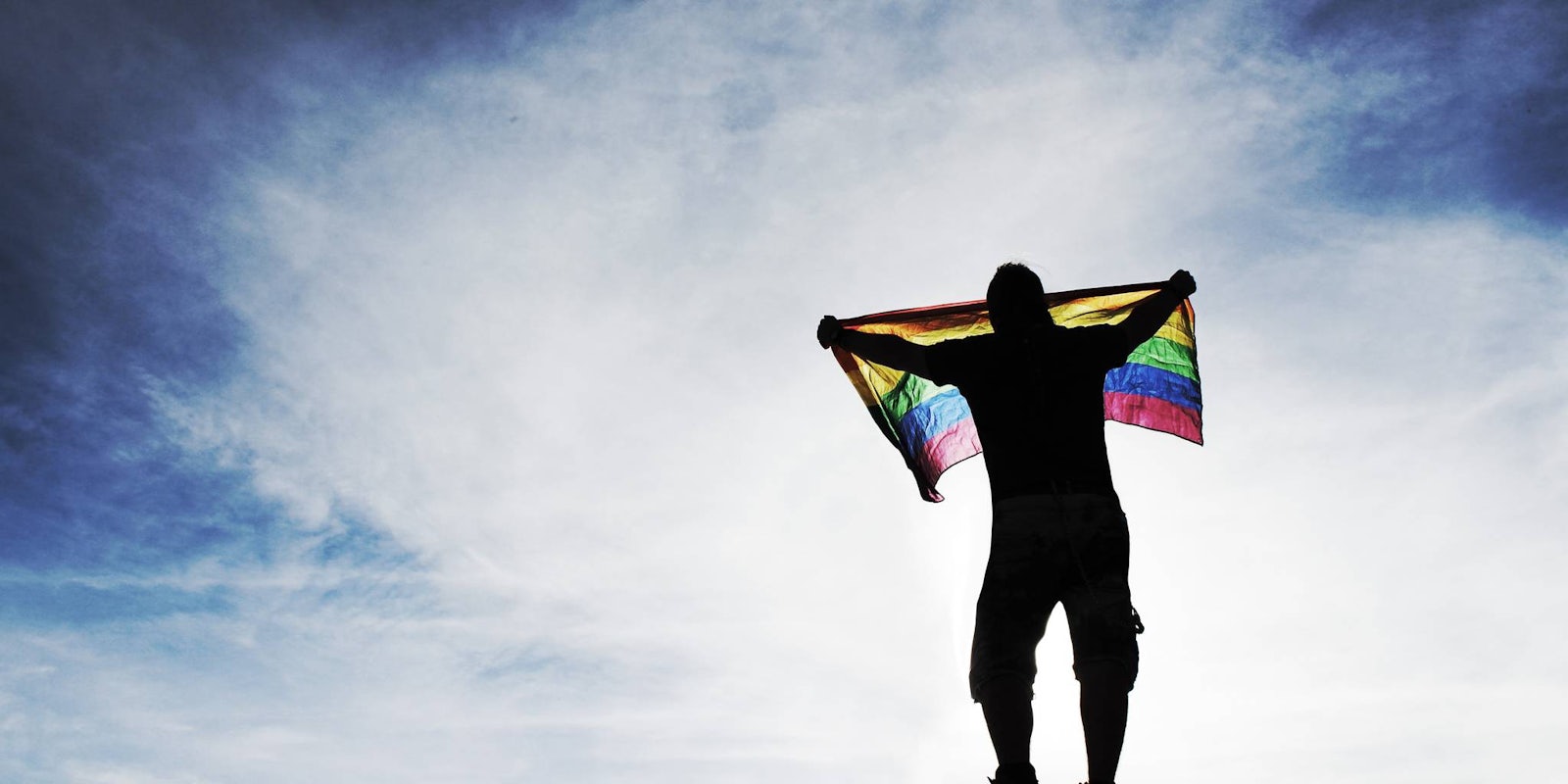College can be a challenging adjustment for many who attend, but for LGBTQ people, the experience can be particularly difficult to navigate. New research published in the Journal of Intercollegiate Sports suggests, however, that LGBTQ people might find allyship in an unlikely source on campus: college athletes.
To better understand the allyship between athletes and LGBTQ people, University of Arizona professor and lead study researcher Russell Toomey has developed an “Engagement in LGBTQ Ally Actions in Sports” scale, which measures how often college athletes engage in ally behaviors, what those behaviors look like, and how they impact queer people on campus.
Using the scale, his research team studied 159 athletes at two NCAA Division I universities, with a nearly perfect split of female and male and 95 percent identifying as heterosexual and cisgender. Study participants were first asked to rate a series of questions and statements, such as “How would you describe your own beliefs about LGBTQ people?” Then, they were asked open-ended questions about what it means to be an ally.
In the end, the study found that more female athletes identified as LGBTQ allies than male athletes did. In fact, 11 of the men surveyed made a point of clarifying that they are not LGBTQ allies.
“Masculinity is heightened in sports, and it may be more important to men to engage in behaviors that show off their masculinity,” Toomey explains. “There may be a fear that if a male athlete stands up or speaks out against LGBT-related bias, they might be perceived as being gay, and they don’t want their teammates to perceive them that way.”
Why do researchers see potential in college athletes to be effective allies? As Toomey explains, “Athletes have a lot of power and prestige on campus and can really motivate change. We know from other intervention studies that people with more prestige are the most effective people to target with interventions because if they change their behaviors, people around them are more likely to change their behaviors.”
Toomey hopes other college athletic departments across the country will use his ally engagement scale to start conversations about how athletes can better stand up for their LGBTQ peers.
“We know that team cohesion and belonging is really important for sports performance,” he says, “so if we can cultivate environments where all players feel safe and welcome and like they’re part of a team, then they’re likely to perform better.”
While the climate has gotten progressively better about accepting openly LGBTQ athletes, those 11 anti-allies show the road ahead is still a long one. But if college athletes were openly queer-friendly, it could set the foundation that anti-LGBTQ bias and harassment is simply not OK.


